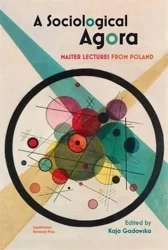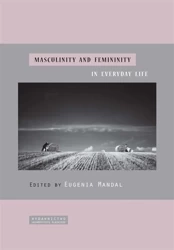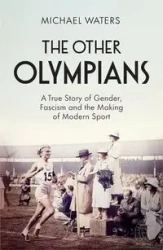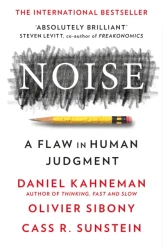Książki socjologiczne po angielsku
( ilość produktów: 30 )Książki obcojęzyczne - Socjologia : Angielski

When McKinsey Comes to Town wer. angielska - Walt Bogdanich
- Autorzy:

Poor Europe. The Problem of Poverty in Chosen... - red. Grzegorz Libor, Dorota Nowalska-Kapuścik
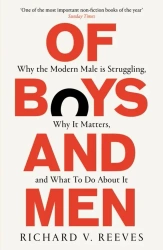
Of Boys and Men. Why the modern male is struggling, why it matters, and what to do about it wer. angielska - Richard V. Reeves
- Autorzy:

Factfulness - Hans Rosling
- Autorzy:

Religiousness and Lifestyles. A Sociological... - Andrzej Górny, Katarzyna Juszczyk-Frelkiewicz, Wo

The economic awareness of the young generation... - red. Urszula Swadźba
- Autorzy:

Identity Narratives. Interdisciplinary Perspective - red. Marek S. Szczepański, Wioletta Tomala-Kania,

Labial-Dorsal Interactions - Artur Kijak
- Autorzy:
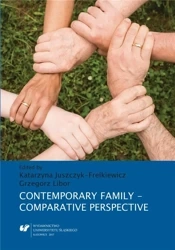
Contemporary Family Comparative Perspective - red. Katarzyna Juszczyk-Frelkiewicz, Grzegorz Lib
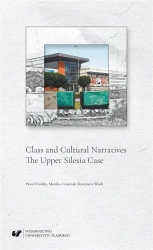
Class and Cultural Narratives. The Upper Silesia.. - Paweł Ćwikła, Monika Gnieciak, Kazimiera Wódz
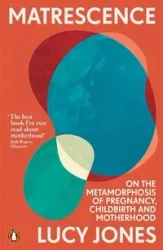
Matrescence - Lucy Jones
- Autorzy:

Cuckooland - Tom Burgis
- Autorzy:

Who's Afraid of Gender? - Judith Butler
- Autorzy:

The Feminist Killjoy Handbook - Ahmed Sara
- Autorzy:

The Other Name Septology I-II - Jon Fosse
- Autorzy:
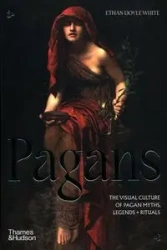
Pagans The Visual Culture of Pagan Myths, Legends and Rituals - Ethan Doyle White
- Autorzy:
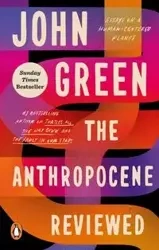
The Anthropocene Reviewed - John Green
- Autorzy:
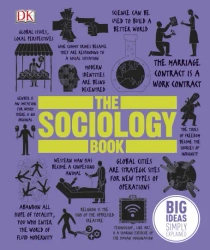
Big Ideas. The Sociology Book - Sarah Tomley, Mitchell Hobbs, Megan Todd, Marcus Weeks

Orientalism - Edward W. Said
- Autorzy:
Książki socjologiczne po angielsku
Chcesz poszerzyć swoją wiedzę z zakresu socjologii? Świetnie trafiłeś! Nasza księgarnia oferuje szeroki wybór książek socjologicznych po angielsku, które pomogą Ci zgłębić tę fascynującą dziedzinę nauki. Niezależnie od tego, czy jesteś studentem socjologii, badaczem społeczeństwa czy po prostu osobą zainteresowaną ludzkim zachowaniem, znajdziesz tutaj wiele cennych pozycji. Nasze książki prezentują różnorodne podejścia do socjologii oraz dotyczą różnych obszarów, takich jak teoria społeczna, społeczne problemy, kultura, nauka społeczna i wiele innych.
Podręczniki do socjologii po angielsku
Szukasz podręczników, które wprowadzą Cię w świat socjologii? Oferujemy wiele podręczników po angielsku, które są doskonałym wprowadzeniem do tej dziedziny. Nasze publikacje są napisane w jasny i przystępny sposób, aby pomóc Ci zrozumieć podstawowe pojęcia, teorie i metody socjologii. Dzięki nim będziesz mógł/a zdobyć solidne podstawy w tej dziedzinie i rozwijać swoje umiejętności analityczne.
Książki po angielsku o socjologii
Ciekawi Cię, jak społeczeństwo wpływa na jednostki i jak jednostki wpływają na społeczeństwo? Nasza księgarnia oferuje szeroki wybór książek po angielsku, które zajmują się socjologią. Od książek o socjologii ogólnej do bardziej specjalistycznych publikacji, znajdziesz tutaj mnóstwo interesujących materiałów do zgłębiania tego obszaru nauki. Książki te analizują różne aspekty społeczeństwa, takie jak klasy społeczne, grupy etniczne, gender, kultura, globalizacja i wiele innych.
Podręczniki po angielsku o socjologii
Jeśli jesteś studentem socjologii lub po prostu chciałbyś zgłębić tę dziedzinę nauki, nasza księgarnia oferuje wiele podręczników po angielsku, które Ci w tym pomogą. Podręczniki te są napisane przez cenionych autorów i zawierają kompleksowe omówienie podstawowych teorii i metod socjologii. Czytając te podręczniki, zdobędziesz nie tylko wiedzę teoretyczną, ale także praktyczne umiejętności, które pozwolą Ci skutecznie analizować społeczeństwo i społeczne problemy.
Książki o socjologii po angielsku - rozwijaj swoją wiedzę
Interesuje Cię socjologia? Nasza księgarnia oferuje szeroki wybór książek o socjologii po angielsku, które pomogą Ci rozwijać swoją wiedzę w tej dziedzinie. Niezależnie od tego, czy jesteś studentem, badaczem czy po prostu pasjonatem socjologii, znajdziesz tutaj wiele interesujących publikacji.
Książki o socjologii po angielsku mogą dotyczyć różnorodnych tematów, takich jak teoria społeczna, metody badań socjologicznych, społeczne problemy, kultura, gender, globalizacja i wiele innych. Dzięki nim będziesz mógł/a lepiej rozumieć społeczne zjawiska i analizować działanie społeczeństwa.
Znajdź odpowiedni podręcznik do socjologii po angielsku
Jeśli szukasz podręcznika do socjologii po angielsku, z pewnością znajdziesz go w naszej księgarni. Oferujemy wiele podręczników, które są idealne dla studentów socjologii, ale także dla osób spoza tego obszaru, które chcą zgłębić tę dziedzinę. Nasze podręczniki są napisane w klarowny sposób, zawierają praktyczne przykłady i wskazówki oraz umożliwiają rozwijanie umiejętności analitycznych.
Nie tylko studenci mogą skorzystać z podręczników do socjologii po angielsku. Jeśli jesteś nauczycielem, również możesz znaleźć odpowiednie materiały do prowadzenia lekcji socjologii. Podręczniki te posiadają konkretne informacje oraz narzędzia, które ułatwią Ci prowadzenie lekcji.
Odkrywaj socjologię za pomocą książek po angielsku
Książki o socjologii po angielsku to doskonały sposób na pogłębianie swojej wiedzy na temat społeczeństwa. Niezależnie od tego, czy jesteś początkującym czy zaawansowanym czytelnikiem, z pewnością znajdziesz książki, które odpowiedzą na Twoje potrzeby.
Nasza księgarnia oferuje szeroki wybór książek o socjologii po angielsku, napisanych zarówno przez znanych badaczy, jak i młodszych autorów. Zapoznając się z różnymi perspektywami na socjologię, będziesz mógł/a poszerzać swoje horyzonty i zgłębiać to, co najbardziej Cię interesuje.
Nie czekaj dłużej i odkrywaj fascynujący świat socjologii za pomocą książek po angielsku dostępnych w naszej księgarni. Zapewniamy szybką i bezpieczną dostawę, a także szeroki wybór tytułów, które pozwolą Ci rozwijać swoją wiedzę i umiejętności w tej fascynującej dziedzinie nauki.






